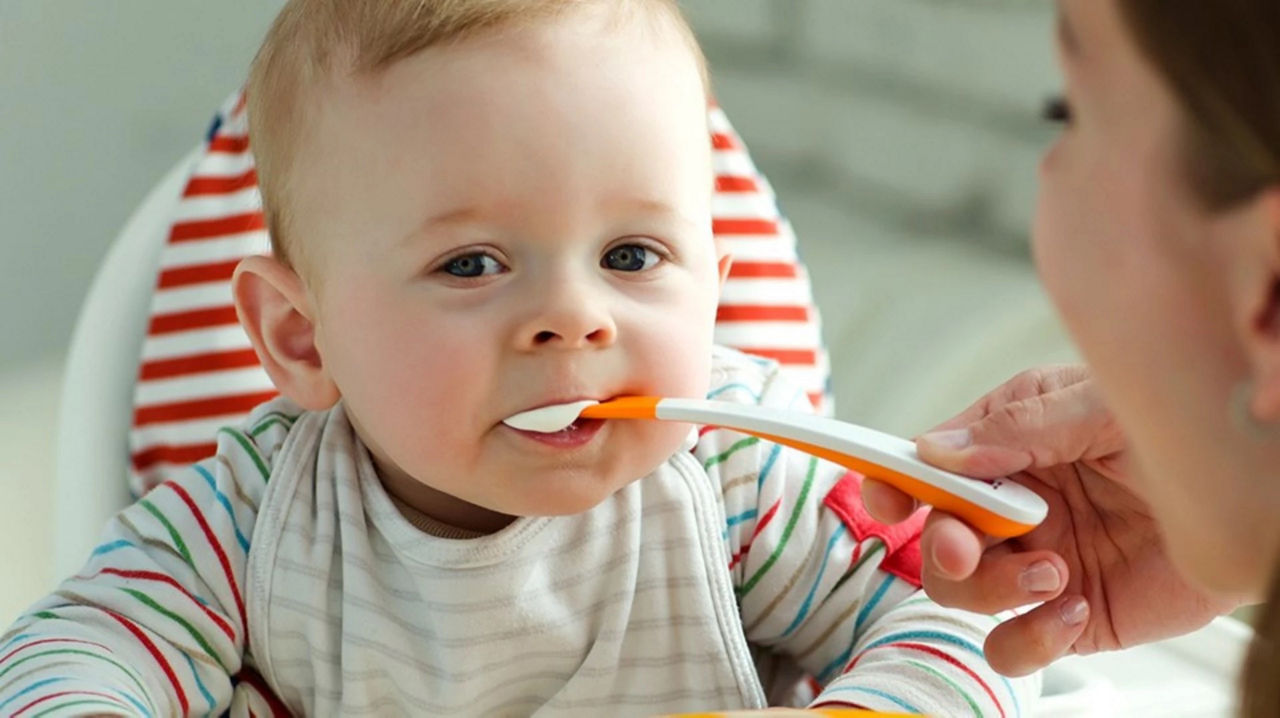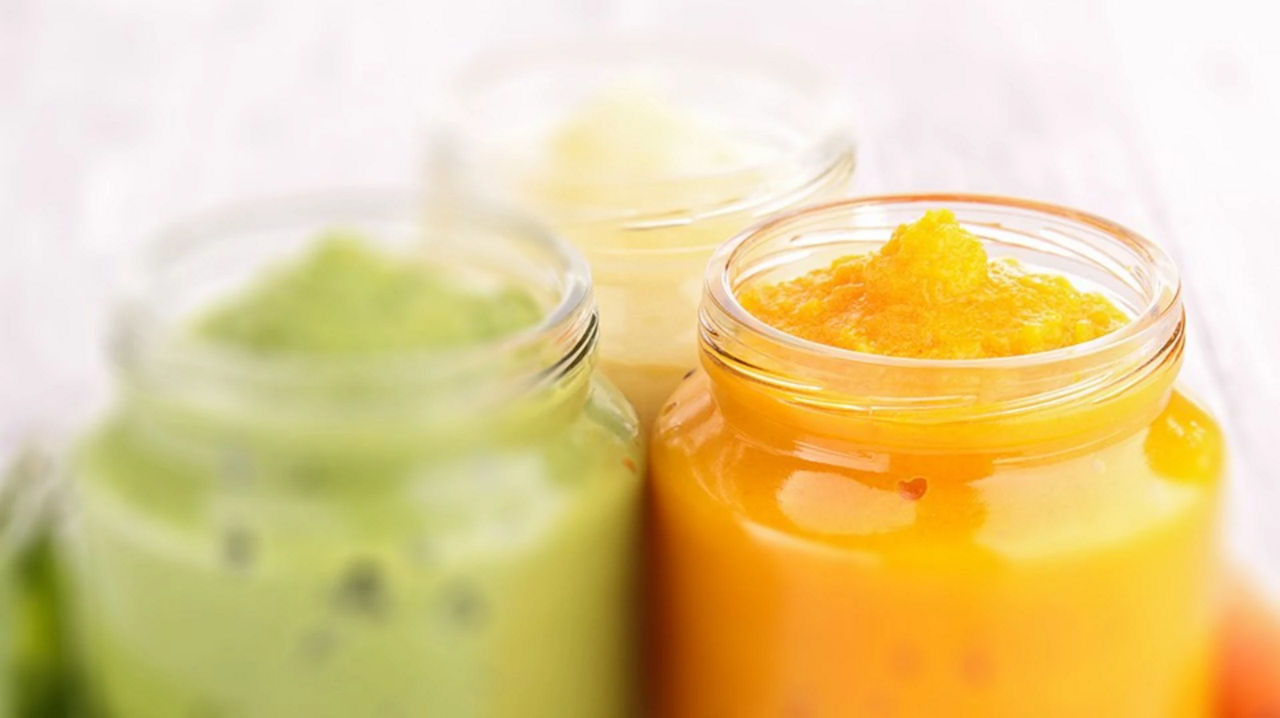During the period between 10 and 12 months old, you are likely to see some of the most incredible milestones in your baby’s development. From saying their first words to taking their first steps, the skills they have been practising are now being perfected and put to good use.
Your baby’s development at 10–12 months old
Stepping up
They're coming on in leaps and bounds

What to expect between the 10th and 12th months?
Your bright little 10-month-old baby has been working on their coordination skills and may now be able to drink from a beaker, play with finger foods, and possibly feed themselves with a spoon. Soon they will be uttering their first words and taking their first tentative steps. All this adds up to increased independence, which will keep going from strength to strength.
A nutrient-rich diet remains important to provide all the vitamins and minerals they need. And a variety of foods, fed in small quantities throughout the day, will ensure they get them.
Look who’s talking – and walking
With your help and support, your 10-month-old baby will soon be saying their first words and taking their first steps. Whether it is ‘wu wu’ for dog, ‘ju ju’ for juice, or ‘mama’ and ‘dada’, hearing their first words is always incredible. Between the 10th and 12th months, they may also start to connect the words they have been using with actual objects.
If your baby can already pull themselves up into a standing position, they may soon take their first small and tentative steps, using you or some furniture for support. Every baby will do this at their own pace, so try not to rush them.
 In the next few months, they may take their first small and tentative steps
In the next few months, they may take their first small and tentative steps
Your baby has been strengthening their leg muscles in preparation for walking through crawling and kicking.
Their developing coordination skills
As your baby’s hand–eye coordination improves, they will gain greater control over their hands and fingers. They will also become increasingly fascinated by ‘cause-and-effect’ actions, such as the turning wheels on a toy car that make it move.
Although they may be able to hold a spoon and try to feed themselves, their attempts will still be quite messy for some months to come. It’s wise to keep a cloth close at hand, have a good supply of bibs and perhaps even lay newspaper or a plastic tablecloth under their highchair to catch any spills.
Encouraging your baby to be hands-on at mealtimes can help improve their coordination skills.
Feeding your baby’s development
At 10 months old, your baby’s increasing mobility and mental curiosity require extra fuel. Because their tummy is still tiny, it is best to feed them a variety of foods in small amounts regularly throughout the day.
This will ensure they get the energy and nutrients they need. And, by offering them a variety of foods right from the start, you will be helping to establish healthy eating habits for life. To learn more about the importance of nutrients for development, and including variety, read our articles.
Vitamin D for bone development
Vitamin D, often referred to as the sunshine vitamin, plays an important role in supporting the development of healthy bones and teeth. It is also needed for normal absorption of calcium from foods1. Deficiency of vitamin D in young children is associated with rickets, a condition that affects the mineralisation of bones and cartilage.
In the UK, all pregnant and breastfeeding women and young children are at risk of vitamin D deficiency2. This is because the unpredictable weather and our northerly latitude mean sun exposure is often limited. And as only a few food sources naturally contain vitamin D, it can be extremely hard to get enough.
Vitamin D is produced by the body when it is exposed to bright sunlight.
Getting their daily dose
The Department of Health recommends that all babies (unless formula-fed) and children from six months to five years should take 7–8.5 micrograms (0.007–0.0085mg) of vitamin D a day in the form of vitamin drops3.
Encouraging their wobbly steps
Help to build the confidence your baby needs to take those first unaided steps by sitting a little distance away and, once they are standing and stable, opening up your arms and encouraging them to take small steps towards you. Make sure you praise every effort – especially if they make it into your arms without falling.
Next steps
Including vitamin D in your baby’s diet
Most of our vitamin D comes from exposure to the sun. However, a limited number of foods also contain it. These include:
- Oily fish – herring, salmon, sardines and mackerel
- Eggs
- Fortified breakfast cereal
- Fortified margarine
- Fortified infant formula
To help your 10–12 month-old get sufficient vitamin D in their diet, you could try including Aptamil Follow On milk or Growing Up milk. Our special baby breakfast cereals are also fortified with vitamin D.
related articles
Learn more about your baby

Get in touch with our Careline experts
Our nutritionists and feeding advisors are always on hand to talk about feeding your baby. So if you have a question, just get in touch
- Scientific Advisory Committee on Nutrition. Update on Vitamin D. London: TSO, 2007.
- Misra M et al. Pediatrics 2008;122:398-417.
- NHS UK. Vitamin D [Online]. 2012. Available at: www.nhs.uk/Conditions/vitamins-minerals/Pages/Vitamin-D.aspx[Accessed April 2014]
Last reviewed: 13th August 2014




